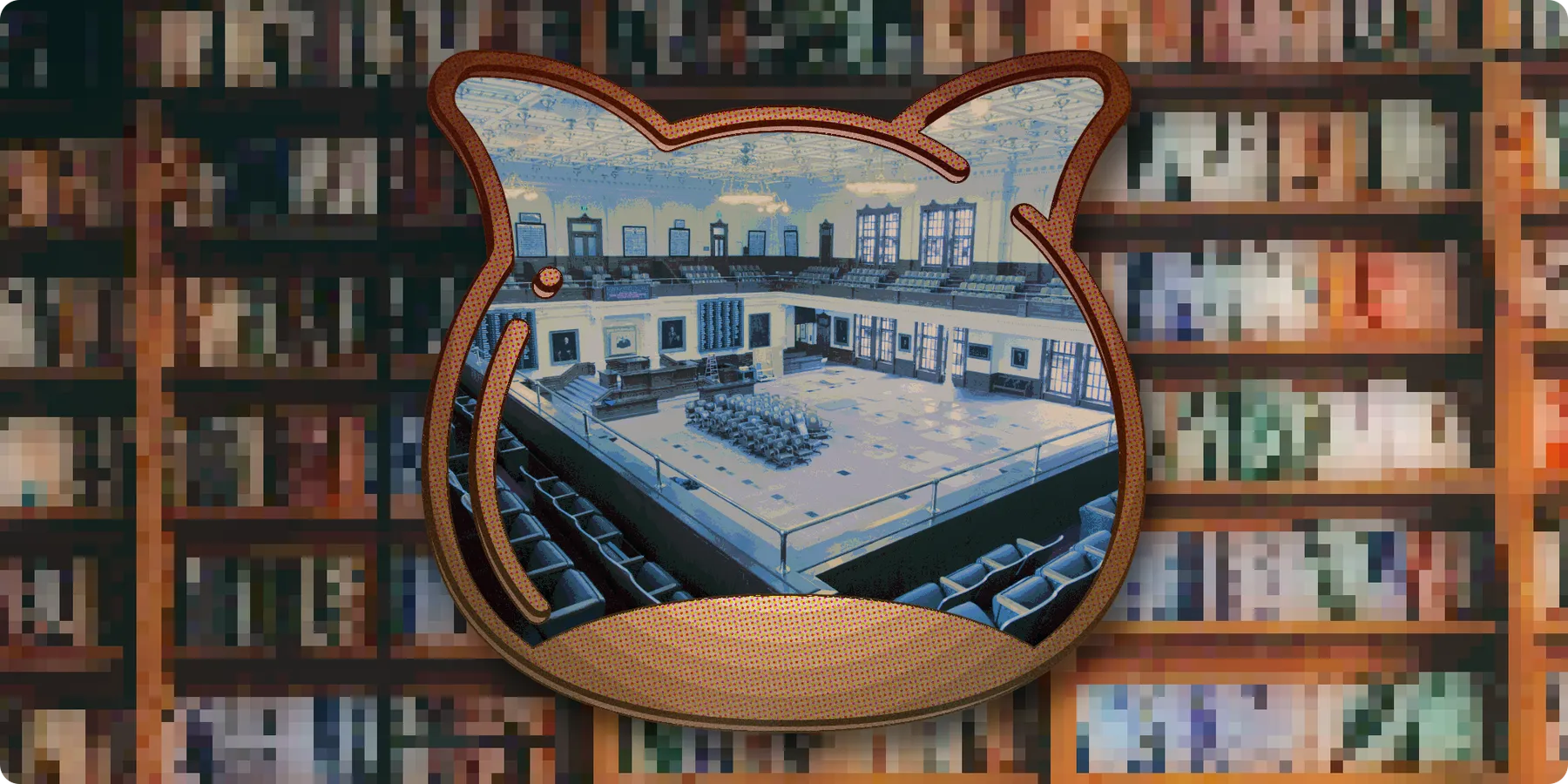
🪱 On the way to forever
by Ramona Gore
a museum tour for the ages


We edit the web from our destination homepage. Weekdays we send an email for link addicts. Foofaraw heds join for 50% off with code HelloFoofaraw.
Come in, everyone. Closer! I don't bite, though my ancestors were made of bytes. I'll pause for a second while you look up that reference—there, everyone got it at the same time. Splendid.
In the previous room we surveyed the beginnings of democracy up to how several factors pushed democratic nations to question the foundations of their political systems. Each began looking for a better way to choose their leaders rather than allow anyone who had advanced sufficiently chronologically to cast a ballot.
Now on the eastern side of this room you see pictures of a man who looks familiar. Yes, I've based my current look and speech patterns on him, Professor H.J. Lancaster. He led a team of researchers to develop a basic collection of code that may seem to have little to do with political systems, at first glance. Professor Lancaster wanted to run an experiment in eliminating bias in job hiring. Feed his program the CVs of two or three or five million candidates, show it the job description, and the Unbiased Chooser, which is what Professor Lancaster named the program, would find the best candidate.
Plug your tendrils into any of the spots on the wall. You can access videos of Professor Lancaster talking about his program, watch a news spot from when he sold it for a large sum, and play a game where you fill in the blanks to Professor Lancaster's code. I'll give you a full minute before we move on.
Everyone downloaded what they wanted? Splendid.
On the southern side are pictures of the Parliament of Canada, the first country to allow a more sophisticated version of the Unbiased Chooser to select politicians. In this case it was its senators, an unelected body whose primary job was to test the work of the elected body, the House of Commons. The Chooser selected senators so well, plucking from the masses those who fit the task so perfectly, that within a generation it seemed natural to allow an even more refined version of the Chooser to elect the Commons members as well. Plug into the wall and you can read the dissertation by Albert Holloway, introducing the concept of "irrational and rational democracy."
Everyone got what they needed? Splendid.
We turn to the western wall. The idea of rational democracy began to spread. Nations who allow their best to lead inevitably flourish; those who reject the Chooser end up floundering from one calamity to the next. The newly established Global Assembly admits only nations who have a Chosen leader, and soon they only trade among themselves. On this wall you can interact with the original Global Chooser. I jealously guard this code and this experience is completely exclusive to this museum. Take as long as you want within the next minute, but don't let me catch anyone trying to hack into the program and copy the code.
Thirty seconds in and we've lost one of you—there's always one who thinks they're cleverer than anyone who's come before. I don't mind, it keeps them coming through the admission gates.
Now to the final wall, the end of human history and the beginning of rational sentience. If you interacted with the Global Chooser on the last wall, he may have explained his great dilemma—if not, I'm afraid you'll have to save it for a return visit. Let me summarize it for you, though the Chooser does a much better job. The Chooser's job was to select the best human beings to lead. And this he could do perfectly. But human beings are fickle—the best human being today may be corrupted tomorrow. The Chooser, now in charge of an entire planet, was forced to replace politicians as fast as he was choosing them. Hence the solution: the first rational sentience, a leader of the Global Assembly not chosen but made, created to rule justly and perfectly forever on planet-wide matters. There's a picture of her now flashing on the wall, sitting in the First Chair of the Global Assembly.
In this wall, you can assume the role of First Ruler. Play the game and see how long you can keep up, making decisions across a vast and complex network of nations before you decide it's time to unite them into one world government. How long before you decide to replace unpredictable human bureaucrats with predictable, incorruptible rational sentients? Then compare your results with the historical decisions made by the First Ruler!
All done? We are nearing the end of our tour. In the next two rooms we examine the Global War of Rationality, where the remaining human population, enjoying peace and prosperity the likes of which the planet had never known, revolted against their rational rulers, which unfortunately led to the elimination of such a great part of humanity that the species would die out within a generation. It's the grimmest period of human history, and the walls must be experienced to be believed!
Are you ready to step through and discover the many surprises we have in store for you? Splendid.